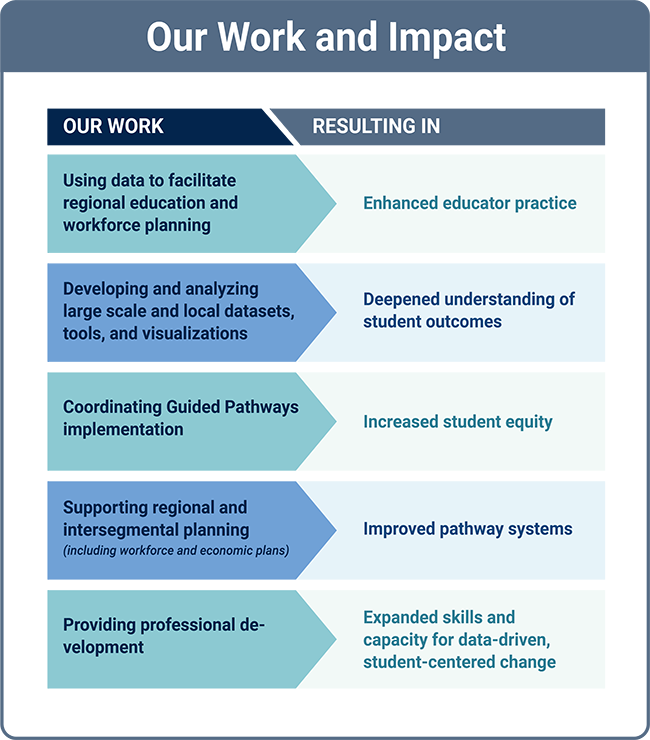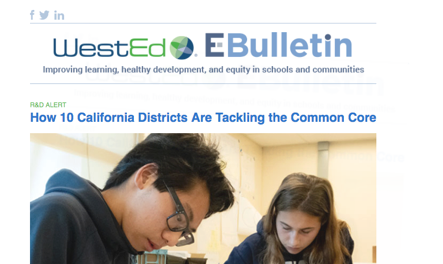Overview
Strengthening postsecondary education and workforce training can increase economic mobility and lead to better overall health in communities, research shows.
We work collaboratively with K–12, adult education, postsecondary, and industry leaders to build economic development systems that help bridge equity gaps for families and communities. Our technical assistance, professional development, evaluations, and data tools are designed to help you create equitable outcomes by:
- Promoting college and career readiness
- Boosting long-term job success
- Building economically resilient communities and stronger regional economies
Learn more about our Key Projects.

Our Work and Impact
Our work: Using data to facilitate regional education and workforce planning
Resulting in: Enhanced educator practice
Our work: Developing and analyzing large scale and local datasets, tools, and visualizations
Resulting in: Deepened understanding of student outcomes
Our work: Coordinating Guided Pathways implementation
Resulting in: Increased student equity
Our work: supporting regional and intersegmental planning (including workflorce and economic plans)
Resulting in: Improved pathway systems
Our work: Providing professional development
Resulting in: Expanded skills and capacity for data-driven, student-centered change
Featured Experts

Our Work in Action
We implement a broad range of projects that advance economic mobility in California and across the nation. The following projects illustrate the depth and breadth of our work.
Modernizing State Longitudinal Data Systems
We led the planning process for California’s Cradle-to-Career Data System that links existing education, workforce, financial aid, and social service information to equip leaders to improve outcomes for all students throughout the state. In addition to making an unprecedented volume of analytical data available to the public on pathways to education and career attainment, the data system provides tools related to:
- College and career exploration
- Applying to college and for financial aid
- Documenting learning
Find out how your state could lead a similar planning process.
WestEd’s understanding of the Cradle-to-Career pipeline has informed the design and facilitation of meetings of higher education and workforce partners, which has, in turn, led to the development of new, effective, and scalable student success strategies.
David Rattray, UNITE-LA
Supporting Nevada’s State Agency of Education with Regional K–14 Pathway Mapping
Our team conducted a statewide study of K–14 career pathway programs in Nevada comparing high school career education with college pathways and state and regional labor markets. In addition, we led regional planning sessions with educators across the state to help inform more robust intersegmental pathways to employment.





 Randal Tillery
Randal Tillery Kathy Booth
Kathy Booth Svetlana Darche
Svetlana Darche Alexandria Wright
Alexandria Wright

